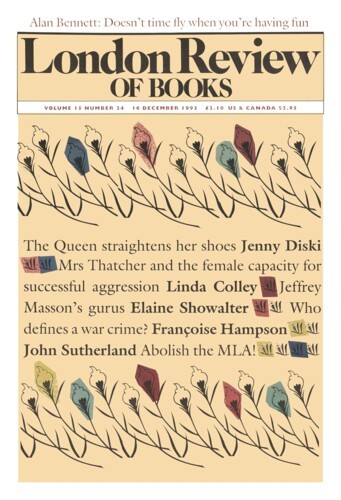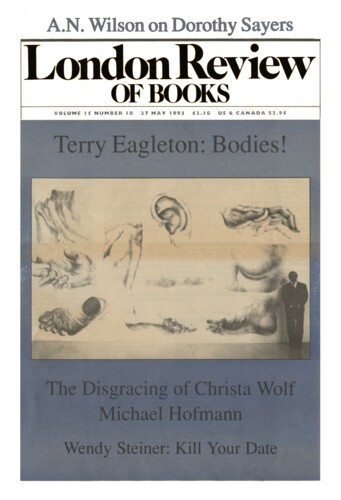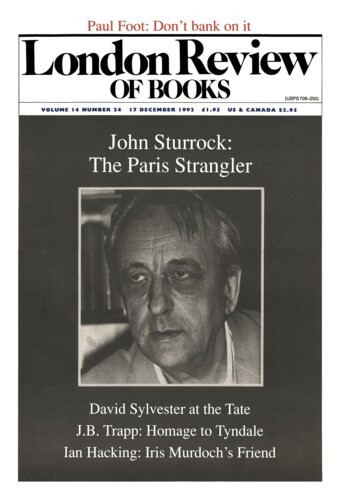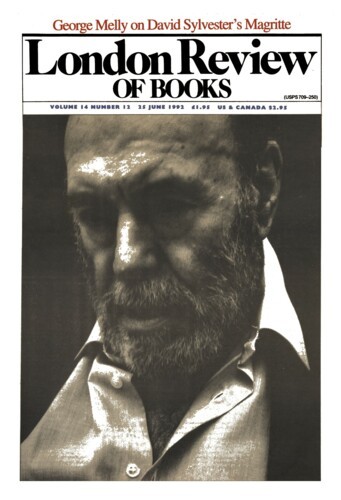Doing what doesn’t come naturally
John Sturrock, 16 December 1993
Second languages don’t come naturally to us, they have to be learnt, formally in large part and deliberately. The language we are born into the midst of is not learnt but ‘acquired’, by the occult, labour-saving means of Chomsky’s Language Acquisition Device, an innate predisposition in our neurons which, once we are attuned to the local syntax and prevailing vocabulary, ensures that we eventually ‘know’ our native tongue without having had to try, and empty of memories as to how we internalised it. If we happen to grow up in the midst of more than one language, we end up bi- or multilingual, but just as unable to be explicit about a process that has matured willy-nilly, which is studyable by others but opaque to ourselves. It’s only when we come to learn another language at a later date that we get an idea of what is involved, and of how easy it is to flounder when doing consciously what before we did so well without thinking.




